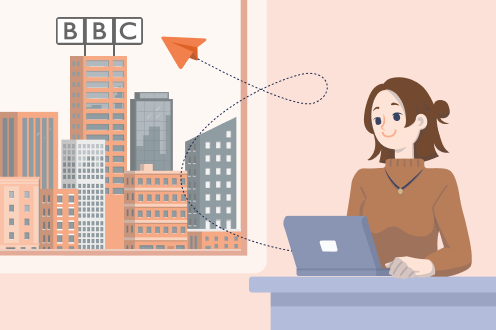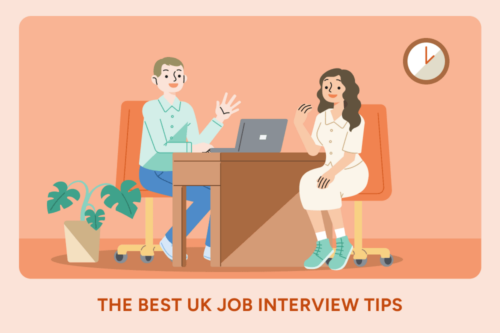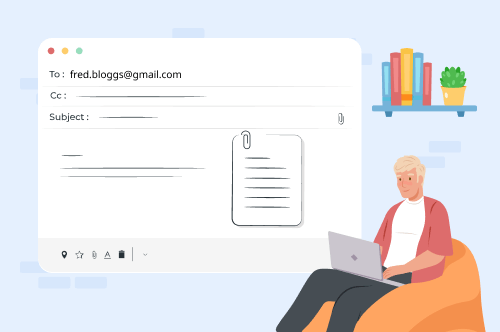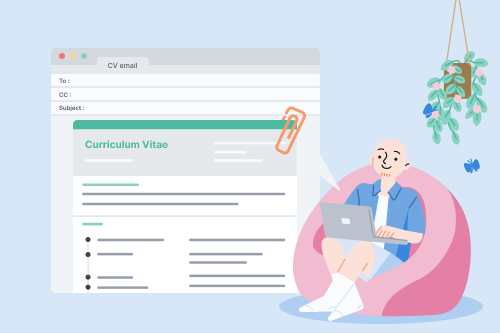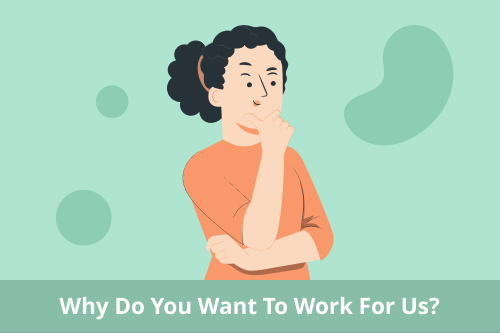Afraid to leave your phone unattended because you’re waiting for a job offer after what you thought was a perfect interview? Consider sending a follow-up email.
A follow-up email after an interview politely asks the interviewer to update you on the status of your job application. It’s fine to send a follow-up email after a week has passed since your interview, or sooner if the interviewer named a day they’d get back to you by.
How to write a follow-up email after an interview
It’s important to follow proper etiquette when you’re following up on a job interview. Here career coach Margaret Buj shares expert interview tips on how to keep track of your job opportunity without coming across as rude or pushy:
If the timing is right, you can start writing your follow-up email:
1. Find the right person to email
First, you’ll need to address your email to the person with the most control over whether you’ll be hired.
Typically, the lead interviewer is that person, so that’s the person you should email if you have their address. If not, try any of the other interviewers.
If you’re struggling to track down the email addresses of any of the interviewers, the next option is to contact the person who invited you to the job interview.
Companies usually send an invitation email to interviewees that includes the address, time, dress code, documents required, and other relevant details. So addressing the person who sent that invitation should work.
You could also consider contacting the head of HR.
2. Write a polite but direct follow-up email
Your next step is to write your follow-up email.
Start with your subject line. Make it short and precise. For example:
Interview Follow-Up — Molly Morgan (25/02/2023)
As you can see, your subject line should include the reason you’re emailing, your name, and the date of your interview.
Then, write your email. Take a look at this text version (that you can copy, paste, and modify) for ideas:
The example interview follow-up email above is effective for five reasons:
- It’s polite: after a greeting of ‘Dear’, a title, and the person’s surname, the writer thanks the interviewers for meeting them during the original interview and politely requests a status update
- The email reminds the interviewer of the writer’s job title and interview date, helping to jog the interviewer’s memory
- The writer offers to provide additional details and re-send their well-written CV or cover letter
- Contact information is reiterated, with a friendly reminder of the writer’s phone number and email address
- There’s a respectful sign off — ‘Best wishes’ followed by the writer’s name on the next line
If you want to write your own follow-up email, just include these elements to come across as a confident (but not overly so) professional.
Follow-Up Email After Interview: UK Example
Not sure if your follow-up email is set up right? Check out this follow-up email after an interview example before hitting ‘Send’:
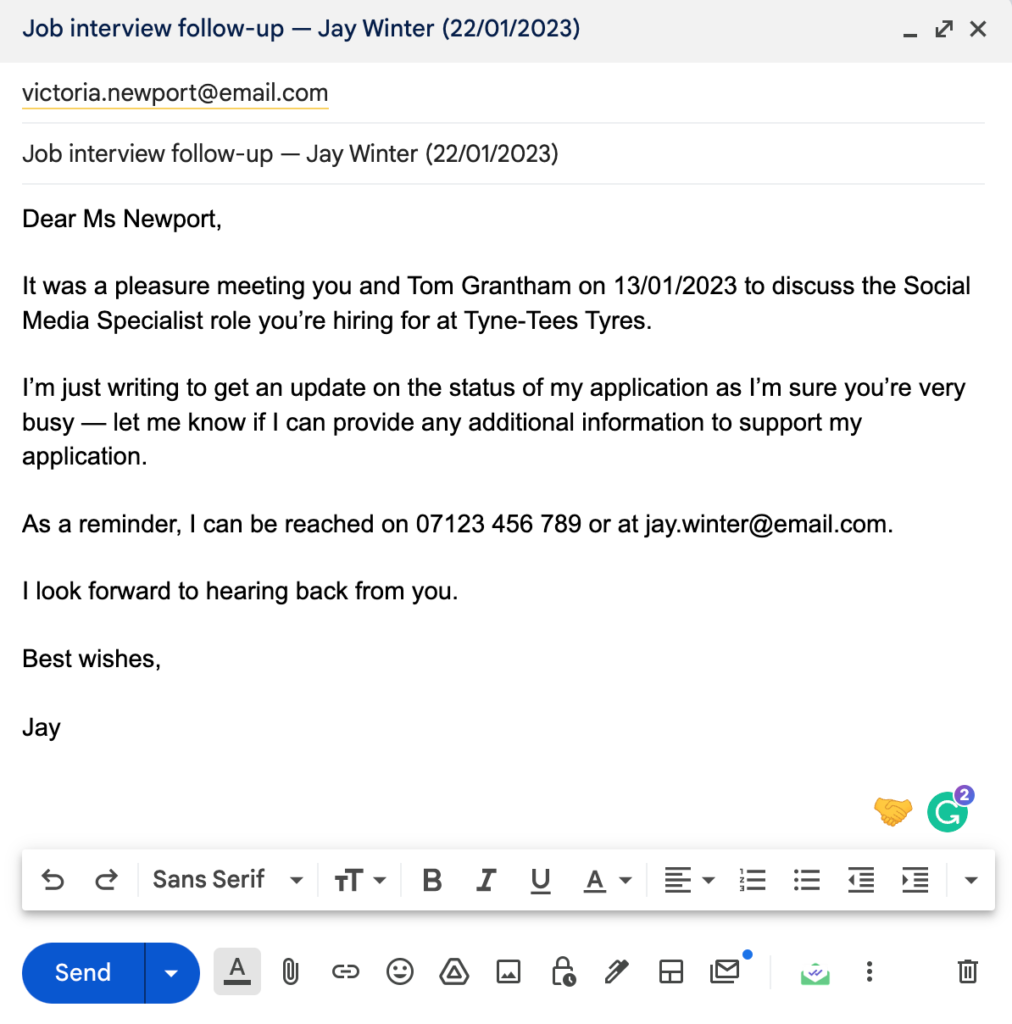
3. Send your email and then wait
Once you’ve written and proofread your email, you can send it. However, if you want to be extra safe, you can ask a friend or family member proofread it quickly, or use a tool like Grammarly to pick up grammar mistakes.
Try not to send your follow-up email on Friday afternoon or Monday morning — otherwise, it might get lost in a pile of weekend emails.
Be ready to hear back from the company by:
- checking your spam folder and deleted emails folder
- making sure your phone’s silence unknown callers setting is switched off
- switching off silent mode on your phone
The wait might be difficult, but try not to think too much about hearing from the company for at least another 7 days from the day you sent your initial follow-up.
To ease your mind, remember the company might be:
- still holding interviews for the same or other positions that they need to finish
- in the middle of a big project and haven’t had time to consider hiring
- waiting for confirmation from HR/legal/finance that they can hire you
- waiting to hear back from one of your CV references
In the meantime, it’s worth exploring other job opportunities just in case this application doesn’t end in good news.
After 7 days have passed since your follow-up email, it’s worth following up once more. You should either:
- send a follow-up email to someone else at the company, like the HR manager, cc-ing the first person you emailed
- give the company a ring (asking for the interviewer by name)
The company’s phone number should be provided on its website.
If you don’t get a job offer, consider uploading your CV to a good CV maker that can help you optimise your next application. You can also upload your cover letter to a cover letter optimiser if you think it’s affecting your application.
Frequently Asked Questions About Interview Follow-Up Emails
Here are some questions our users frequently ask about following up on interviews:
1. How do I ask if I got the job?
Here’s how you ask if you got the job in a polite way:
‘Hello, I was just calling/writing to ask about the status of my job application’.
This method works because — instead of straight-up asking whether you got the job, which could be considered rude — you give the employer the chance to clarify whether they’re still deciding, interviewing other candidates, or checking your documents.
2. How long should you wait after an interview to follow up?
You should wait 1 week after an interview to follow up with an email or telephone call. But avoid calling on Friday afternoon because the staff are likely working hard to finish projects before the weekend. And avoid ringing on Monday morning because they’re likely working through inboxes full of emails from the weekend.
If no-one replied to your first follow-up email, wait 1 more week before attempting to follow up again so that you don’t give the wrong impression to the company.
3. Is it good to send a follow-up email after an interview?
Yes, it is good to send a follow-up email after an interview because it shows that you’re still interested in the role. Plus, if the interviewer has been busy with work, it reminds them to get back in touch with you.
There are no downsides to sending a follow-up email after an interview as long as you wait 1 week from the interview and don’t send more than 1 email per week.
You can also send a thank-you email within 24 hours of an interview to show you remain interested in the role and to highlight your professional etiquette.
